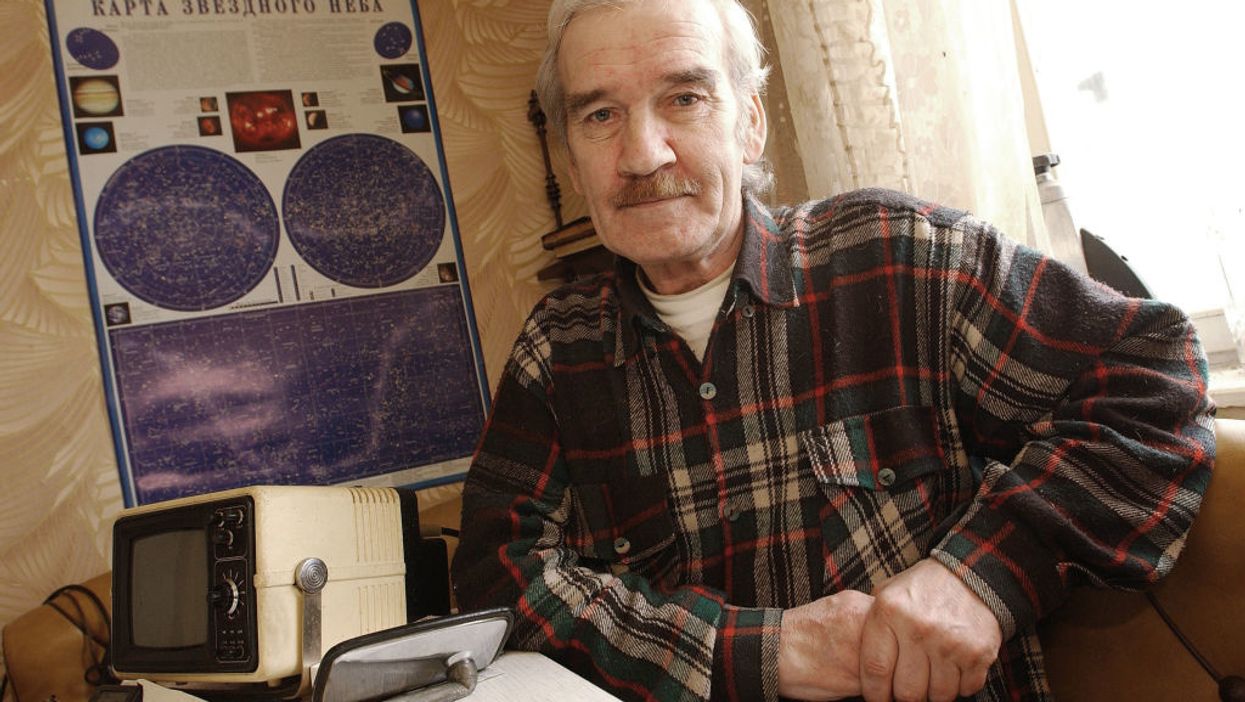
Photo by Scott Peterson/Getty Images
The story of the hero who saved the world by ... doing nothing.
Thirty-seven years ago Saturday, an incident occurred that very nearly ended life on earth as we know it. That's not hyperbole or exaggeration; the events of Sept. 26, 1983, actually nearly caused nuclear war between the United States and the Soviet Union when a faulty Russian detection system erroneously declared that the United States had launched nuclear missiles. Only the gut feeling of a lone Russian military officer saved the world from probable nuclear holocaust.
Many of the details of the story are shrouded in mystery and dispute, as they often are in a paranoid communist government. Communist governments — particularly of the Russian variety — are loath to admit error, particularly of the kind that involves nuclear weapons. Thus, the official explanations and results of the Soviet investigation that followed must be taken with several healthy grains of salt.
As best as can be determined (or frankly, guessed), however, here is what happened on that fateful day in 1983. A freak alignment of sunlight on high-altitude clouds detected by a Russian satellite was interpreted as a nuclear missile launch and triggered an alarm inside a bunker near Moscow, where Lt. Col. Stanislav Petrov of the Soviet Air Defense Forces was on duty. Petrov's orders in this case were clear: He was to immediately notify Yuri Andropov, the paranoid leader of the Soviet Union.
Against the backdrop of world events as they were then unfolding, which included the recent Soviet downing of Korean Airlines Flight 007 (which had a United States congressman on board) and NATO's announced decision to move Pershing II missiles into Western Europe in order to increase first-strike capabilities against the USSR, such a notification would have resulted, almost without doubt, in the USSR launching an immediate retaliatory strike against the United States. United States doctrine, in turn, would have been to respond to such a launch with a retaliatory strike of its own. Who knows how many millions of lives would have been lost in the ensuing destruction?
Fortunately, however, Lt. Col. Petrov was not a man to follow instructions blindly. Years later, Petrov would explain that he did not follow orders and immediately notify superiors because "I had a funny feeling in my gut. I didn't want to make a mistake. I made a decision, and that was it." Petrov declared that the computer's signal was likely a false alarm, based in part on the fact that the computer had detected the launch of only five ballistic missiles, and he believed that if the United States were really launching a pre-emptive attack, the launch would have been more substantial.
"When people start a war, they don't start it with only five missiles. You can do little damage with just five missiles," Petrov thought to himself.
For several tense minutes, Petrov and his staff waited. The satellites had detected the launch early, but if it were genuine, the radar would soon also pick up the missiles. When the radar ultimately failed to show any actual incoming missiles, Petrov began to breathe easier and confidently assured his comrades in the bunker that the alarm was false and should not be reported up the chain of command.
Years later, Petrov would recall what he thought during those agonizing moments of waiting to see if radar would confirm that the missiles were real and not merely a computer glitch: "[W]e knew that every second of procrastination took away valuable time, that the Soviet Union's military and political leadership needed to be informed without delay. All I had to do was to reach for the phone, to raise the direct line to our top commanders — but I couldn't move. I felt like I was sitting on a hot frying pan."
It is difficult for people living in 2020 to understand how close the world came to a nuclear holocaust on that day. The Soviets' radar capability was extremely limited at the time, and their satellite system lagged far behind the United States'. This meant that the Soviets knew that they would have at most minutes — not hours — in which to consider whether to launch a retaliatory strike. In the Soviet thinking of the time, there would not have been time to double- or triple-check the genuineness of the alarm; the missiles would have had to be launched immediately or not at all.
Additionally, the Soviet government under Andropov was almost unimaginably paranoid about Ronald Reagan and was convinced that he intended to launch a first strike against Russia.
With all of this added together, it is almost a certainty that if Petrov had followed orders, nuclear missiles would have been launched at the United States on that day.
Petrov, of course, was not exactly thanked by his government, which interrogated him relentlessly about the events of that night. Officials ultimately refused to reward him in any fashion, because to do so would have been to admit errors in their nuclear warning system, which would have embarrassed the Communist Party. He retired early from the army and lived in relative obscurity for years, caring for his wife, who later passed away due to cancer. He reportedly suffered a mental breakdown in the late 1990s and blamed the Soviet military for making him a "scapegoat."
He passed away in 2017 due to pneumonia at the age of 77. As of 1997, he was so poor that he was forced to grow his own potatoes for food — apparently forgotten by the world he had most likely saved. Later in life, he was given some awards and recognition for his heroism, but none of these were in any way substantial.
Generally, when fictional stories are written about people who save the world, they are about people who take heroic actions. In Petrov's case, his heroism consisted mostly of refusing to take action.